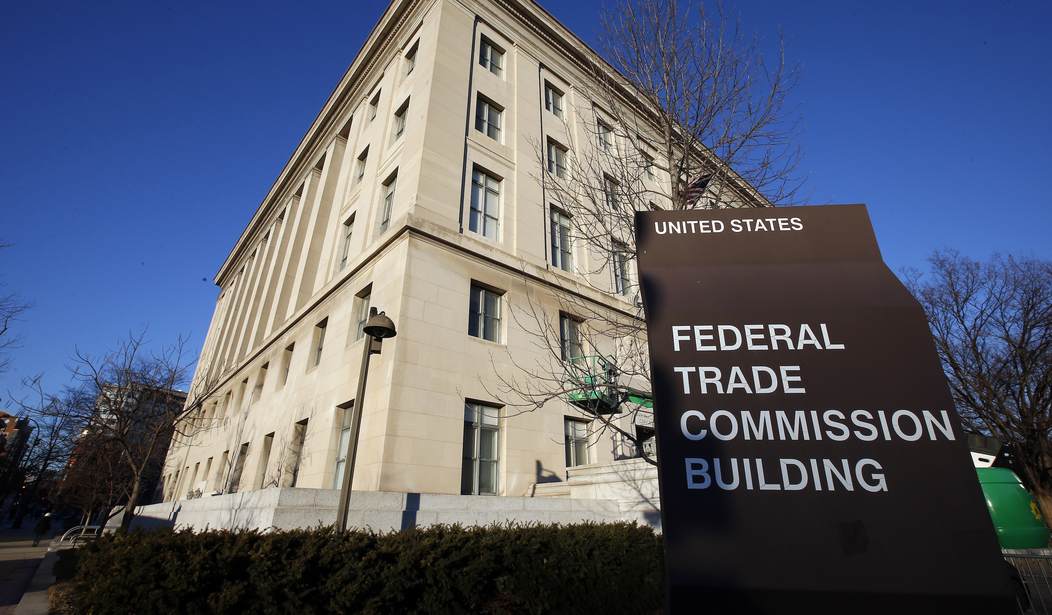Earlier this month, the Federal Trade Commission (FTC) released a Notice of Proposed Rulemaking (NPRM) proposing a ban on noncompete clauses. If successful, it will have the potential to impact approximately 30 million U.S. workers. Employers and employees alike have expressed deep concern about the ways the ban could violate trade secrets and intellectual property protections.
Noncompete agreements are extremely important in fostering innovation as well as competition, and are key in preventing the poaching of clients. While the FTC estimated the ban could increase workers’ collective wages by as much as $300 billion per year, it is still not within the agency’s authority to regulate such a huge chunk of the economy. This ban would have ramifications on essentially every industry, conflict with laws in at least half of all U.S. states, and impact one in five American workers. The U.S. Chamber of Commerce even referred to the FTC’s noncompete rulemaking as “blatantly unlawful.”
But it should come as no surprise from Biden’s administration. In fact, it’s just the latest example of aggressive rulemaking from FTC Chairwoman Lina Khan. The noncompetes ban will likely face challenges with the Supreme Court given it would nullify tens of millions of contracts and is not within the FTC’s scope of statutory authority. Hopefully the justice system will stop this in its tracks, though the final rule will likely not take effect until late next year. Meanwhile, it would be wise of consumers who wish to submit comments during the open public comment period (which ends on March 10) to remember previous FTC regulatory actions that laid the groundwork for this naked power grab.
Recommended
The FTC is not a lawmaking body and was never intended to be one. But for the last two years, the agency has been expanding its regulatory power at the expense of consumers. It all started in July of 2021 when Khan presided over the rescission of the FTC’s August 2015 Statement of Principles, which the Commission said imposed “unwarranted constraints on [its] authority.” Many described this as a shift away from the consumer welfare standard. Khan’s colleague, FTC Commissioner Philips, even referred to it as the agency’s way of “reducing clarity” in how they would “approach antitrust enforcement.”
Since then, the FTC has consistently sought to expand its power-hungry mandate by continuously rescinding older policy statements, updating rulemaking procedures dating back to the 1970’s, and even announcing intent to regulate sectors it has no reason to be involved in. For instance, the agency announced last August that it intended to look into regulating commercial surveillance and data security, despite Congress already considering a federal privacy bill (the American Data Privacy and Protection Act). Rules in this field are made by state and federal governments, and it is not within an agency’s purview to step in and on their toes.
Furthermore, leading up to the proposal on the noncompetes ban, the FTC filed three complaints earlier this month alleging that two glass companies and a security company “had each violated Section 5 of the FTC Act by entering and maintaining noncompete agreements with their employees.” It is alarming that the FTC made these standalone Section 5 claims; not only was it the first time the agency did this in decades, but wielding Section 5 as a weapon leaves room for severe misuse of power. It is tremendously broad, prohibiting all “unfair methods of competition,” and would allow the FTC to go after business practices not typically targeted. Indeed, on November 10, 2022, the FTC issued a Policy Statement regarding the scope of “unfair methods of competition” under Section 5, claiming that it reached farther than antitrust law. As Commissioner Wilson stated in her dissent, the new practice would adopt a problematic “‘I know it when I see it’ approach.”
Chairwoman Khan even stated last July that she wants the agency “to use all of the tools in [their] toolbox,” especially in “crafting regulations to combat anticompetitive behavior”— explicitly going against the FTC’s role as a non-lawmaking body. The Commission’s new agenda is clearly designed to speed up investigatory processes and enhance their own rulemaking authority in what many have described as “a departure from its statutory constraints and judicial oversight.”
Evidently, the FTC is engaging in regulatory overreach, and whatsmore it’s doing it with zero transparency. Less than a week into her Chairwoman position, Lina Khan ordered her staff to cancel all public events and press outreach — a ban that was lifted last May, following criticism of FTC leadership by agency employees. In addition, as Commissioners Wilson and Philips pointed out in 2021, the Commission votes and makes decisions before hearing what people have to say, essentially rendering any realtime public comment useless.
The Commission has rejected the idea of limiting power and regulatory reach. Its recent actions have shown little concern for consumers while it has increasingly overstepped its rulemaking authority in what has amounted to orchestrated mission creep. We can expect continued FTC investigations and attempted regulatory action in industries undeserving of such scrutiny by a mere agency. Supporting transparency and providing guidance to companies on boundaries and consumer protection is one thing; proposing sweeping bans outside agency jurisdiction is another. Consumers and workers should be wary as the FTC continues to encroach on the economy, blatantly refusing to accept the constraints Congress set in the first place. Under Chairwoman Khan, the FTC has ceased all self-limitation, and the proposed noncompetes ban is just another sign of belligerent power expansion.
April Liu graduated from Mount Holyoke College in May 2022 with a double major in Economics and International Relations. She is currently working at the Libertas Institute as a Research Associate after recently completing an internship at the American Institute for Economic Research. Her specialized research areas include data privacy, tech, and AI regulation at local and global scales.

























Join the conversation as a VIP Member